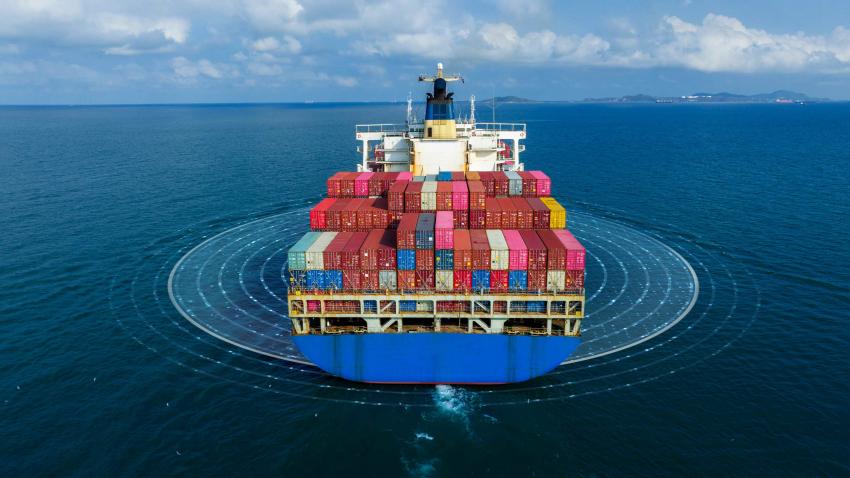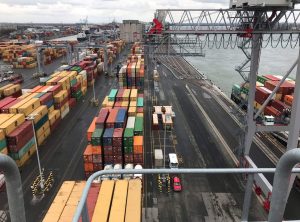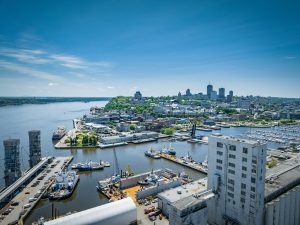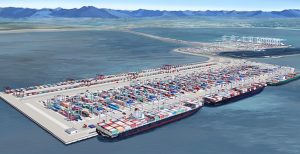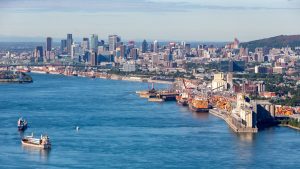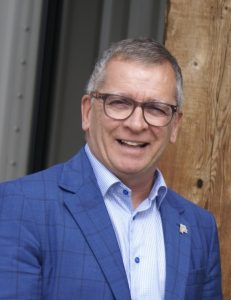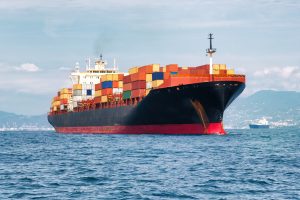The Port of Riga has joined a consortium of Latvia, the UK and Canada to develop a solution for a single Remote Operations Centre (ROC).
Last week, maritime and ICT professionals along with researchers from the three countries took part in a workshop held at the Freeport of Riga Authority. Together, they will collaborate on developing a solution for Remote Operation and Control (ROC) platform. This platform will serve as the foundation for an advanced testing facility for shipping and port operations in each of the project partner countries.
The project’s lead partner is the UK maritime innovation company On The Layline Limited.
The Canadian partners are the Fisheries and Marine Institute of Memorial University at St. John’s, Newfoundland and Labrador and St. John’- based Angler Solutions, a consulting firm specialized in the evolving energy and ocean technology sectors.
ROC project partners from Latvia are the Freeports of Riga and Ventspils, Liepaja SEZ, as well as Latvijas Mobilais Telefons (LMT) and Riga Technical University (RTU).
“The next generation of shipping and port technologies is rapidly evolving, primarily focused on the development and integration of various autonomous operating systems,” commented Rob Watson, founder of On The Layline Limited. “These encompass autonomous vessels, a range of autonomous floating vehicles operating above and below water, and autonomous flying drones. The aim is to synergize these technologies to enhance the efficiency and safety of shipping and port operations. However, the principal challenge currently demanding attention is the regulatory gap – the absence of universally recognized rules and standards for autonomous floating vehicles across the world’s seas.”
The development of a ROC solution would create a system that is complete and capable of providing a single platform for all data sources needed for safe maritime autonomous operations. This platform is essential to support the successful development of the related industry as well as the development of standards and regulatory frameworks for the use of autonomous systems and vehicles on water. The development of these standards and frameworks will accelerate the deployment of new systems as well as international cooperation between countries and the use of relevant testing platforms.
“We are currently engaged in several new technology initiatives with significant relevance and applicability to port operations.” said Ansis Zeltiņš, the Freeport of Riga CEO, addressing the positive benefits of the project.
“Over the past few years, we have established collaborations with Latvian technology pioneers and the 5G ecosystem. Additionally, we consistently engage in dialogues with leaders in European port innovation – Rotterdam, Trieste, Stockholm, Plymouth and other ports. Given this background, our port’s involvement in the ROC development project is a natural progression. It offers the opportunity to become a unique test bed for next-generation maritime technologies, while increasing the overall high value-added activity in the port, attracting high-value investments and generating new revenues through active participation in the data economy.”
The project will result in a comprehensive report outlining the general requirements and a development roadmap for a fully-fledged ROC system. According to Neils Kalniņš, coordinator of the Latvian project partners’ consortium and head of the VAS ES 5G Techritory ecosystem: “Another objective is to establish collaborative test-beds and ROC systems for testing and certifying the next generation of technologies within the port and maritime sectors. The creation of such a test-bed in Riga would not only foster the development of the port but also make a substantial contribution to the country’s economy. This contribution would manifest through the growth of local manufacturing and the ICT sector, coupled with the attraction of international investment.”
(Image from Freeport of Riga Authority)


